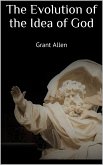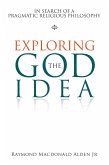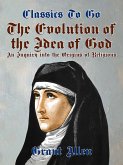In "The Idea of God in Early Religions," F. B. Jevons meticulously explores the evolution of the concept of divinity across ancient cultures. Employing a comparative approach, Jevons delves into a variety of religious traditions, illuminating how early societies constructed and understood their gods within the broader context of human experience. His analytical prose weaves together anthropological insights and philological methods, offering a kaleidoscopic view of religious belief that reflects the complexity of human thought. The book provides a nuanced understanding of how early religions shaped societal norms and individual beliefs, making it a foundational text in the study of comparative religion. F. B. Jevons, a distinguished scholar of religious studies and anthropology, drew upon his extensive background in philosophy and theology to articulate these ideas. His academic pursuits were deeply influenced by the burgeoning interest in the anthropological study of religion during the late 19th and early 20th centuries. This context afforded him the opportunity to examine the intersections of culture and belief, leading him to challenge conventional notions of the divine and advocate for a more nuanced understanding of early religious thought. Jevons's "The Idea of God in Early Religions" is an essential read for scholars and enthusiasts alike who seek to uncover the complexities of ancient spiritualities. Its rich analysis and insightful comparisons foster a deeper appreciation for the multifaceted nature of humanity's quest for meaning. Readers will find themselves engaged in a thought-provoking journey that not only informs but also challenges preconceived notions about the divine in early religious narratives.
Dieser Download kann aus rechtlichen Gründen nur mit Rechnungsadresse in A, B, BG, CY, CZ, D, DK, EW, E, FIN, F, GR, H, IRL, I, LT, L, LR, M, NL, PL, P, R, S, SLO, SK ausgeliefert werden.
Hinweis: Dieser Artikel kann nur an eine deutsche Lieferadresse ausgeliefert werden.









